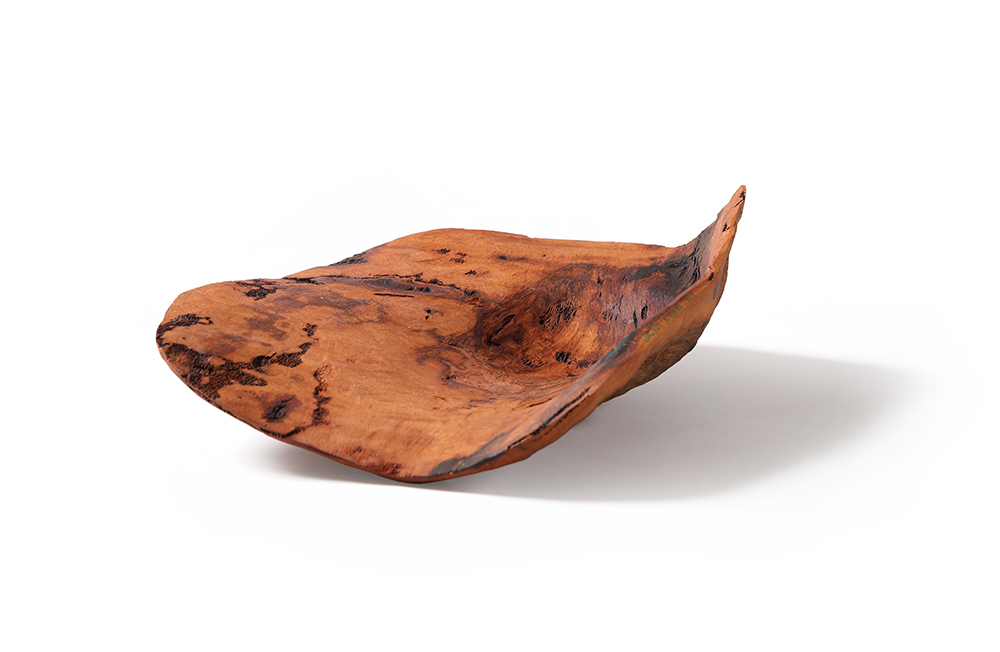Close
Piti (collecting bowl)
As most contemporary Maruku artists use walka, patterns burnt into the wood with wire heated on a wood fire, this bowl is a rarer example of women’s work. It is also unusual for being made in collaboration by husband and wife team, Simon and Roma Butler.
The piti or wooden bowl is a woman’s traditional carrying vessel for food and water. Together with a wana or mulga wood digging stick and a wira, a smaller version of the piti used to scoop soil or ladle water, it was used by women hunting for witchetty grubs, honey ants or small burrowing animals and their eggs. After loosening the soil with a wana it was shovelled aside from the hole with the wira and the bounty carried home in the piti. Nowadays a crow bar, a short handled shovel and a billy can are the women’s hunting tools. The piti was also used for carrying an immense variety of other desert seeds and fruits. A manguri or head-ring, was used to cushion the bowl as the women carried it on their heads to collect food and water. Traditionally made of spun hair, emu feathers and coiled grasses, wool and raffia are now also used.
Roma Yanyangkari Nyutjangka Butler is a Pitjantjatjara artist born in 1959 at Wilu Rockhole, Western Australia. She spent her early years at the Ernabella Mission, then at Warburton where she was educated, before settling at Irrunytju in 1971. She began painting in the late 1990s at Kintore and Kiwirrkurra. She is now based in Warakurna.
Roma continues to practice traditional cultural activities including hunting and gathering bush foods, and singing and dancing inma. She painted for Irrunytju Arts and worked at Ngaanyatjarra Media presenting a daily radio news program with her husband, Simon Butler. They were the founding radio broadcasters in 1992 and won the Preston Memorial Award for Lifetime Achievement in 2017. She says “It’s really good work broadcasting and telling stories for Anangu (Aboriginal people), interviewing all the school kids as well as the elders. I really want to help pass on Anangu knowledge to the younger people”
Simon Butler is an elder in the Tjukurla Community and has an extensive knowledge of the law and traditional culture of the region having grown up in the bush living a nomadic life. He was born in the bush at an important place northwest of Tjukurla, Kulkurta. He is the boss for the country there. Simon’s brother Antjatjari Tjakamarra, an original Papunya artist, was instrumental in the homelands movement and establishing the bores on the way to Kurlkurta, which allows family to continue to access that country today.

